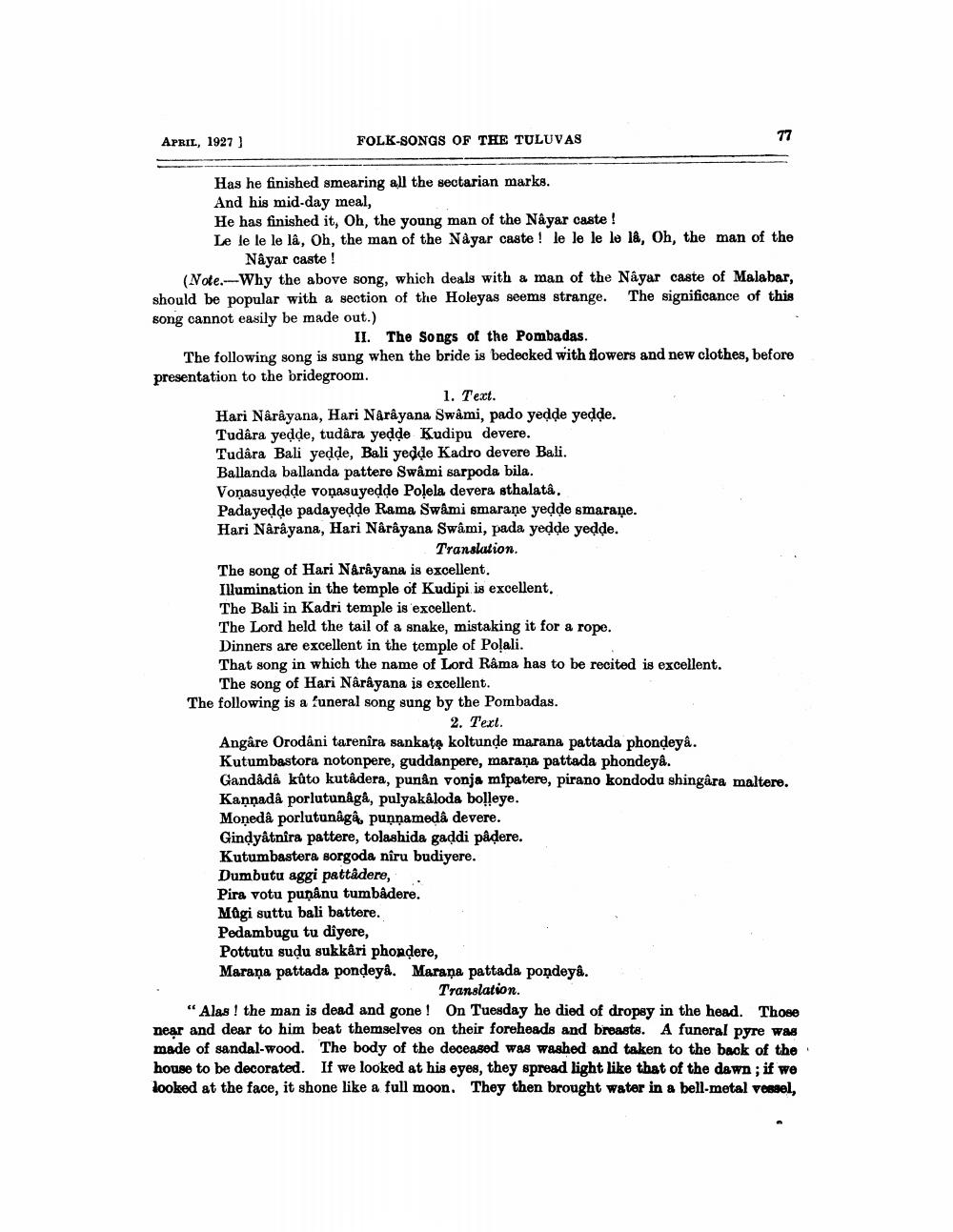________________
APRIL, 1927)
FOLK-SONGS OF THE TULUVAS
Has he finished smearing all the sectarian marks. And his mid-day meal, He has finished it, Oh, the young man of the Nayar caste ! Le le le le lâ, Oh, the man of the Nayar caste ! le le le le lê, Oh, the man of the
Nayar caste! (Note.Why the above song, which deals with a man of the Náyar caste of Malabar, should be popular with a section of the Holeyas seems strange. The significance of this song cannot easily be made out.)
II. The Songs of the Pombadas. The following song is sung when the bride is bedecked with flowers and new clothes, before presentation to the bridegroom.
1. Text. Hari Narayana, Hari Narayana Swami, pado yedde yedde. Tudara yedde, tudâra yedde Kudipu devere. Tudára Bali yedde, Bali yedde Kadro devere Bali. Ballanda ballanda pattere Swami sarpoda bila. Voņasuyedde vonasuyedde Polela devera sthalatå. Padayedde padayedde Rama Swami smarane yedde smaraṇe. Hari Narayana, Hari Narayana Swami, pada yedde yedde.
Translation. The song of Hari Narayana is excellent. Illumination in the temple of Kudipi is excellent. The Bali in Kadri temple is excellent. The Lord held the tail of a snake, mistaking it for a rope. Dinners are excellent in the temple of Poļali. That song in which the name of Lord Rama has to be recited is excellent.
The song of Hari Narayana is excellent. The following is a funeral song sung by the Pombadas.
2. Tert. Angâre Orodáni tarenîra sankata koltunde marana pattada phondeya. Kutumbastora notonpere, guddanpere, maraņa pattada phondeya. Gandâdá kůto kutâdera, punan vonja mipatere, pirano kondodu shingåra maltere. Kannada porlutunaga, pulyakaloda bolleye. Moneda porlutunâgâpuşnamedê devere. Gindyâtnira pattere, tolashida gaddi pâdere. Kutumbastera sorgoda niru budiyere. Dumbutu aggi pattådere, Pira votu punânu tumbådere. Magi suttu bali battere. Pedambugu tu dîyere, Pottutu sudu sukkâri phondere, Maraņa pattada pondeya. Maraņa pattada poņdeya.
Translation. Alas! the man is dead and gone ! On Tuesday he died of dropsy in the head. Those near and dear to him beat themselves on their foreheads and breasts. A funeral pyre was made of sandal-wood. The body of the deceased was washed and taken to the back of the house to be decorated. If we looked at his eyes, they spread light like that of the dawn; if we looked at the face, it shone like a full moon. They then brought water in a bell-metal vessel,




